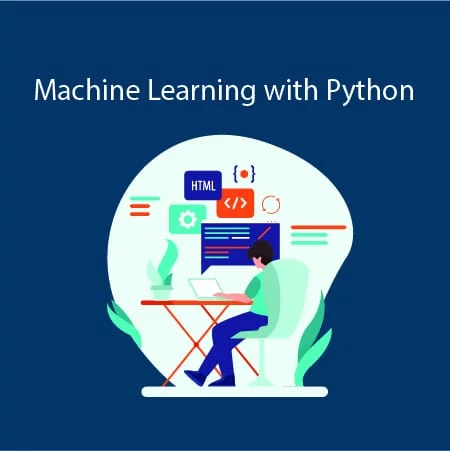
About Course
An advanced machine learning training program with Python would typically cover more sophisticated algorithms, advanced techniques for model evaluation and optimization, and applications in specific domains. Here’s an outline for an advanced machine learning course:
Module 1: Review of Fundamentals
- Recap of Basic Concepts:
- Review of supervised and unsupervised learning.
- Overview of common algorithms (linear regression, logistic regression, k-nearest neighbors).
- Data Preprocessing Techniques:
- Advanced techniques for handling missing data.
- Feature scaling and normalization.
Module 2: Advanced Supervised Learning
- Ensemble Learning:
- Introduction to ensemble methods (bagging, boosting).
- Random Forests and Gradient Boosting.
- Support Vector Machines (SVM):
- Understanding the SVM algorithm.
- Kernel methods and non-linear SVM.
Module 3: Neural Networks and Deep Learning
- Introduction to Neural Networks:
- Basics of neural networks.
- Activation functions, architecture, and backpropagation.
- Deep Learning with TensorFlow and Keras:
- Building and training deep learning models.
- Convolutional Neural Networks (CNN) and Recurrent Neural Networks (RNN).
Module 4: Advanced Unsupervised Learning
- Dimensionality Reduction:
- Principal Component Analysis (PCA).
- t-Distributed Stochastic Neighbor Embedding (t-SNE).
- Clustering Algorithms:
- Hierarchical clustering.
- DBSCAN and other density-based methods.
Module 5: Model Evaluation and Hyperparameter Tuning
- Advanced Model Evaluation Metrics:
- Precision, recall, F1 score, ROC curves.
- Handling imbalanced datasets.
- Hyperparameter Optimization:
- Grid search and random search.
- Bayesian optimization.
Module 6: Time Series Analysis and Forecasting
- Introduction to Time Series Analysis:
- Time series components (trend, seasonality, noise).
- Autoregressive Integrated Moving Average (ARIMA) models.
- Advanced Time Series Forecasting:
- Seasonal decomposition of time series (STL).
- Long Short-Term Memory (LSTM) networks for sequence prediction.
Module 7: Feature Engineering and Advanced Topics
- Feature Engineering Techniques:
- Polynomial features, interaction terms.
- Feature importance and selection.
- Transfer Learning:
- Leveraging pre-trained models.
- Fine-tuning for specific tasks.
Module 8: Case Studies and Real-world Applications
- Industry-specific Applications:
- Healthcare, finance, natural language processing, etc.
- Case studies and practical examples.
- Capstone Project:
- Applying advanced machine learning techniques to a real-world problem.
- Project presentation and discussion.
Additional Considerations:
- Hands-On Coding Labs:
- In-depth coding exercises using Python and relevant libraries.
- Application of advanced algorithms on real-world datasets.
- Interactive Sessions:
- Q&A sessions, code reviews, and discussions.
- Collaborative problem-solving.
- Resources and Further Learning:
- Recommended books, research papers, and online courses for continued learning.
- Discussion on recent advances in the field.
- Certification or Assessment:
- Consider offering a certification or assessment for participants who complete the advanced machine learning course.
Student Ratings & Reviews

No Review Yet


